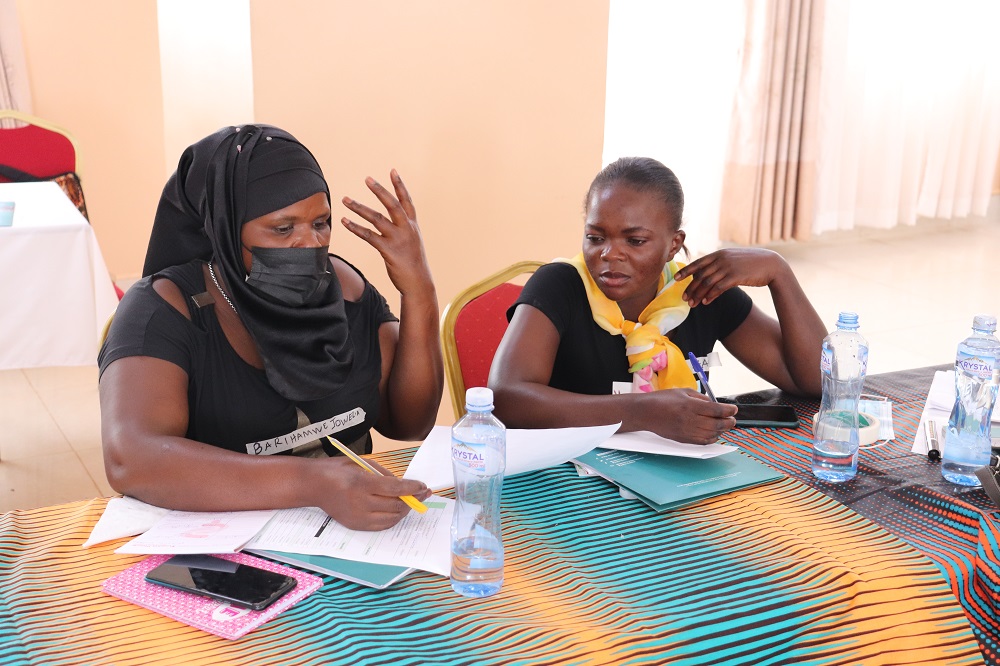In October 2021, The Peace Centre with support from the Stephen Lewis Foundation ran a three-day Training of Trainers (ToT) of 23 Community-Based Facilitators for Peacebuilding aimed at building a pool of community-based facilitators on peacebuilding, mediation and leadership.
During the 3 days, the ToT covered 2 modules on Effective Community Facilitation Skills and Training Delivery Practice. Trainees learnt to;
- Ground themselves: Skills in understanding the basics that inform community facilitation in the context of
peacebuilding; relevance of training peacebuilding. - Human Resource: i) The Adult Trainee/ learner: how adults learn; needs and expectations of adult
learners; appropriate learning methodologies and ii) The Trainer/ facilitator: personal presentation and etiquette, content, context and process, effective facilitation and creativity in training - Create a Learning Environment: This session covered training aesthetics, effective seating arrangements, quality controls, materials branding, managing group dynamics and emotional environment, gender concerns in training
- Training Preparation: This included conducting a training needs assessment- start with the end in mind, training checklist, equipment needs, service and utilities and planning for energisers
- Training Process: Adult learning Skills; Art of Co-facilitation; presentation/ public speaking skills
- Visualization in training: Use of PowerPoint for presentation; use of flipchart/ newsprint, markers and easel;
Codes (skits, photos, galleries, videos) in training - Adult learning process and steps

Racheal Peace Kanyi shares tips for training preparation
The trainees were also divided into learning-teaching teams and practised training delivery on topics including child marriage, human trafficking, destigmatising HIV/AIDS, land grabbing, domestic violence, family neglect among others. The trainees were provided resources to plan, prepare and deliver training on the above topics and received feedback from their peers on areas that they performed and those that needed strengthening.
By the end of the training, community-based facilitators were able to:
a) Plan for a training
b) Use adult learning methodologies and facilitation techniques to transfer knowledge and skills
for peacebuilding in communities
c) Demonstrate ability to deliver training to enhance community-led peacebuilding

The Trainer emphasized that the training was not to provide a prescription but to guide Trainees on the
requirements and fundamentals of initiating, planning and delivering community facilitation to
promote peace in communities. The ToT, therefore, provided experiential learning to relate to the
requirements for fieldwork.



